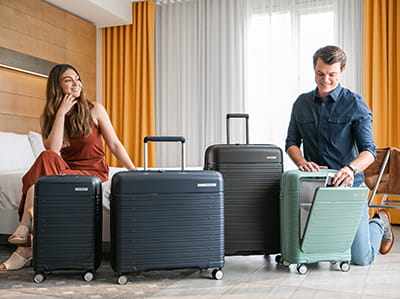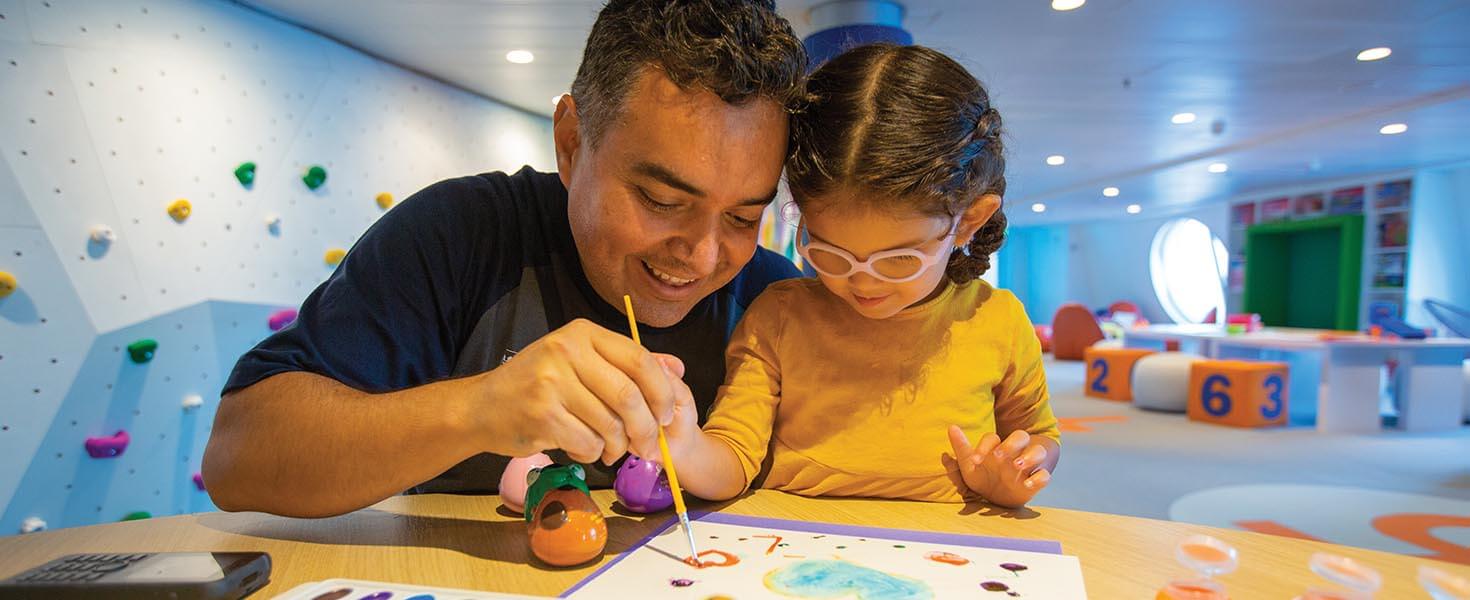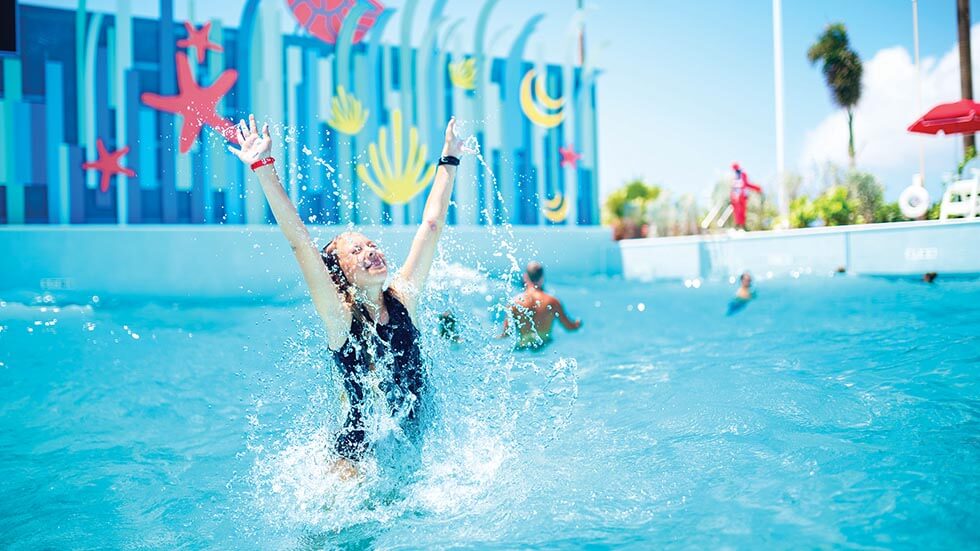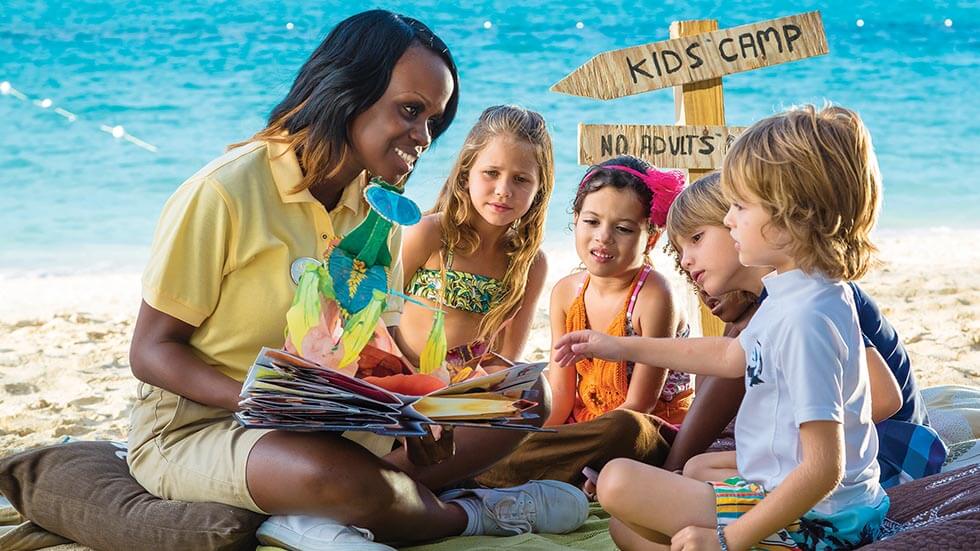Traveling can be challenging for families who have children with autism, but the tourism industry is responding with ways to help ease some of the stress.
When the Stewarts plan their vacations, they must consider one question that doesn’t cross the minds of most families: Will they travel together, or will they travel in two groups? That’s because traveling can be tricky for this family of six, which includes two daughters, ages 10 and 17, and two sons, ages 13 and 15, both of whom have autism.
The Stewarts don’t let autism prevent them from traveling, though, including taking at least one annual trip from their home in Media, Pennsylvania, to Central Florida to visit relatives. Over the past decade, Pamela and her husband, Chris, have learned techniques to relieve some of the stress that travel can cause their sons.
“Before every trip, I make a ‘social story’ booklet, mapping out the steps that are going to take place with photos so that my sons can visualize the entire journey,” says Pamela Stewart. “When flying, waiting in airports and standing in lines usually amplify their anxiety, so we try to keep the journey fluid. We’ll break the security-line process down into chunks, notify the airline with an early boarding request, and seek out sensory rooms or even play areas in airports.”
A NETWORKS OF SUPPORT
Autism Spectrum Disorder (ASD), a group of complex developmental disabilities, affects 1 in 59 children in the U.S. today, according to the Centers for Disease Control and Prevention. ASD is the fastest-growing developmental disability in the U.S., has no single-known cause and has no cure; however, the good news is that early intervention can improve a child’s development. Also, autism awareness and support are increasing among communities—including the travel industry.
“Families living with autism have a lot on their plates daily. Researching and vetting vacation locations and companies is not something they have a lot of time for,” says Audrey White, a Certified Autism Travel Professional at the AAA Store in Westminster, Maryland. “That’s where a travel professional can be an incredible resource for these families. A Certified Autism Travel Professional can help guide them to autism-friendly destinations and give them helpful tips that can be customized for their unique concerns.”
“Families with children with autism have a tendency to stick with routines and stay close to home, but they also want to go places and do things. Today, more and more destinations are opening up the possibilities of travel for them by creating autism-friendly spaces where they can feel safe,” says Chris Gery, a Certified Autism Travel Professional at the AAA Store in Warrington, Pennsylvania. “Also, major airlines now have staff who specialize in autism travel to help put families at ease.”
RISING TO THE CHALLENGE
Programs like Wings for Autism give families the opportunity to participate in a mock airport experience at a handful of airports, including Tulsa International Airport, Washington Dulles International Airport and Boston Logan International Airport. During Wings for Autism events, families practice entering the airport, obtaining boarding passes, checking bags, passing through TSA security checkpoints, waiting at the gate and boarding a plane (that doesn’t take off). Familiarizing families with the process in a controlled environment can help alleviate stress before the actual trip. Similar programs are offered at Philadelphia International Airport and Newark Liberty International Airport, among others.
Many resorts are now equipping their properties with autism-friendly spaces and activities and staffing them with autism-certified professionals. In 2017, Beaches Resorts became the world’s first resort to earn a designation as a Certified Autism Center—and is now an Advanced Certified Autism Center—by the IBCCES. At several of the Beaches-branded resorts, families can benefit from an autism-certified One-on-One Beaches Buddy for childcare; a Culinary Concierge program to cater to dietary needs; private in-room check-in options; sensory toys upon check-in; quiet spaces; sensory-friendly entertainment areas and more. The resorts’ watersports teams have also achieved autism certification, helping children with autism to enjoy everything from snorkeling to diving to waterskiing.
In 2014, Royal Caribbean Cruise Line became the first Autism Friendly Cruise Line, designated by the nonprofit Autism on the Seas.
Theme parks are also beginning to do their part. A leader among them, Sesame Place in Langhorne, Pennsylvania, features the world’s first theme park Certified Autism Center. Here, guests will discover autism-certified staff; a Special Access Program for priority boarding on select attractions; quiet rooms; noise-canceling headphones; low-sensory areas; low-sensory parade viewing areas; a Sensory Guide with information on how attractions may affect the senses; and meet-and-greets with Julia, the Sesame Street character with autism.
“Caregivers need to have time to relax and recharge. Knowing that a [resort or attraction] has trained and certified staff who can give them the break they need is an incredible thing,” says White.
A family getaway with specialized autism support sounds like a dream, says Pamela Stewart. “It helps take the stress off the whole family when you have people who understand how to help children with autism.”
















